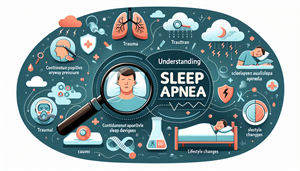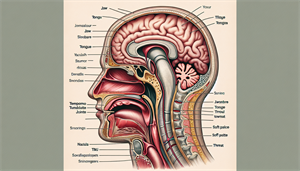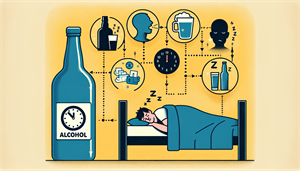
Exploring the Relationship Between Trauma and Sleep Apnea
There’s a growing interest in the clinical and research fields about the connection between trauma, specifically post-traumatic stress disorder (PTSD), and sleep disorders, like obstructive sleep apnea. Studies indicate a high prevalence of sleep disordered breathing, such as obstructive sleep apnea, among individuals with PTSD, ranging from 12 to 90%. The coexistence of these two conditions often exacerbates each other’s symptoms, although a direct causation between trauma and sleep apnea has not been established.
Sleep apnea can interfere with REM sleep, where fear extinction and processing of nightmares take place. This disturbance is especially crucial for individuals with PTSD, as it disrupts the fear extinction process. This disruption could ultimately lead to exacerbated PTSD symptoms. Conversely, addressing both PTSD and sleep apnea concurrently in sleep medicine treatment can enhance an individual’s overall well-being and quality of life, as these conditions are interconnected. For instance, it has been demonstrated that adherence to Continuous Positive Airway Pressure (CPAP) therapy for OSA can lead to notable enhancements in PTSD symptoms.
The complex connection between PTSD and sleep apnea underscores the need for simultaneous understanding and management of these conditions. This involves recognizing the symptoms, understanding the risk factors, and exploring suitable treatment options. Moreover, it demands a holistic approach that not only focuses on medical treatment but also emphasizes lifestyle modifications to bolster mental health and sleep quality.
The Impact of PTSD on Sleep
Nightmares and frequent awakenings are common sleep disturbances that can be triggered by PTSD. In fact, the occurrence of these sleep disturbances is notably high among individuals with PTSD, with 70–90% of patients reporting such issues and 35–61% experiencing symptoms of insomnia.
The sleep cycle in individuals with PTSD is significantly affected, characterized by increased light sleep, reduced slow-wave sleep, and higher REM density. These alterations disrupt the brain’s capacity to handle memories and emotions, thereby hindering the recovery process following a traumatic event. Obstructive sleep apnea syndrome can further exacerbate these sleep disturbances.
The risk of developing obstructive sleep apnea (OSA) is heightened by the presence of PTSD. Furthermore, untreated sleep apnea can cause more frequent awakenings, potentially leading to more intense and frequent nightmares for individuals with PTSD. Therefore, it’s crucial to recognize the impact of PTSD on sleep and seek timely and appropriate treatment to mitigate these disturbances.


